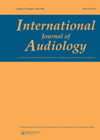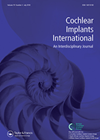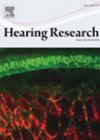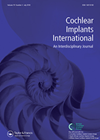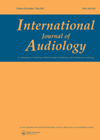
Journal Reviews
Directional microphones and speech
This study aimed to research how speech recognition, listening effort and localisation depends on hearing aids’ microphone configuration in people with moderate to severe hearing losses. Eighteen participants with sensorineural, symmetrical, moderate to severe hearing loss were tested. Participants were...
Is auditory frequency discrimination related to speech recognition in implantees?
Why do two identical implantees perform differently? This fundamental question has not yet been answered despite the extensive research in the field. The authors attempted to clarify the issue, or at least approach it, assessing the association between deficits in...
Childhood speech processing in background noise
Normal childhood development of the auditory systems involves mapping sounds to meaning and the neural coding of speech. Children are often subjected to adverse listening environments such as high levels of background noise. This paper aimed to delineate the effects...
Differences in timbral cues’ perception between teenagers with cochlear implants and those with normal hearing
The authors aimed to assess timbral cues’ perception of teenagers with cochlear implants and compare it to the respective perception of normally hearing teenagers. Thirty-four teenagers were included in the study, nine Korean adolescents with cochlear implants and 25 adolescents...
Hearing protection and hearing loss
This study examined the interaction of hearing protection for noise reduction and hearing loss with speech recognition performance. Forty five subjects with four hearing loss profiles were fitted with two different level dependent hearing protectors (circumaural and inserts) in two...
Cochlear implantation in Ménière’s disease
This was a Belgian retrospective study of seven patients with Ménière’s disease who underwent cochlear implantation. All patients had bilateral severe to profound hearing loss and all met AAO-HNS criteria for Ménière’s disease. Follow-up for patients ranged from six months...
Frequency Compression – is there a benefit?
The goal of this study was to investigate whether frequency compression (FC) hearing aids provide more benefit than conventional hearing aids. Twelve experienced hearing aid users 65-84 years of age with moderate to severe high frequency hearing loss wore the...

